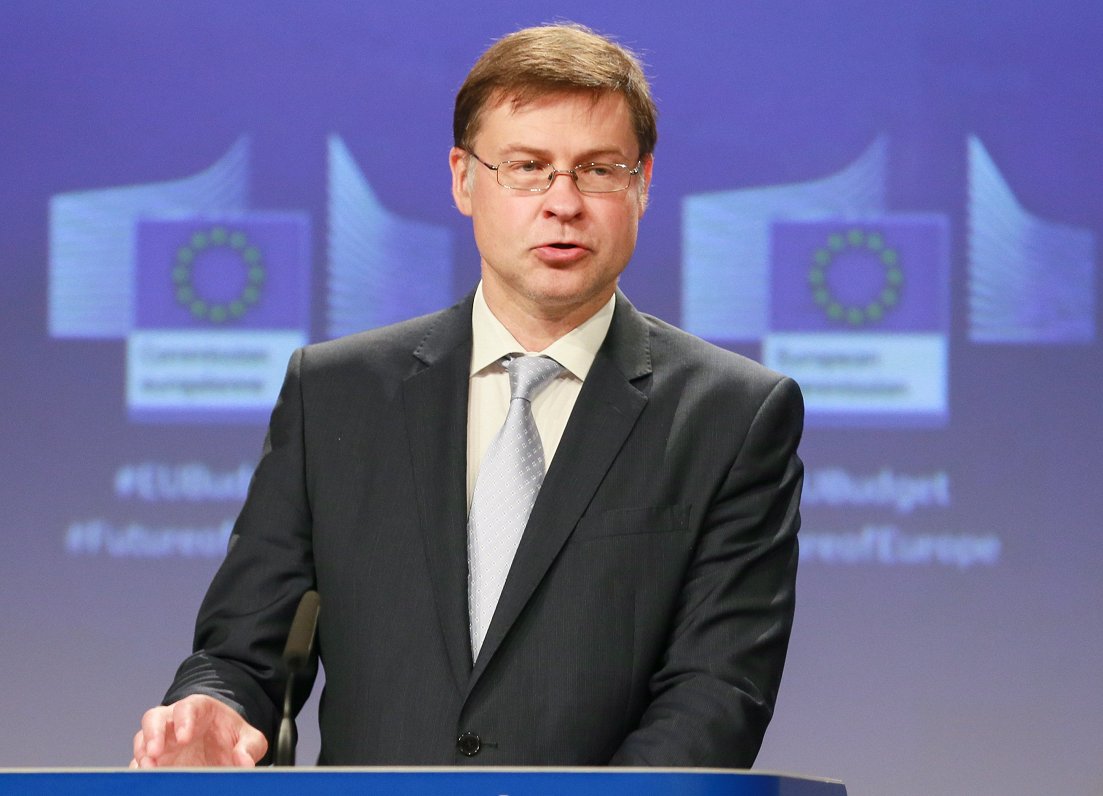Speaking on LTV's Morning Panorama show, Dombrovskis said that countries such as Latvia would do well to prepare now for less favorable economic conditions in coming years.
"At this point in time, people do not yet feel the economic slowdown. We expect economic growth in the European Union to continue this year and next year. But we have to reckon that the economy develops cyclically. It cannot grow all the time," said Dombrovskis, who steered Latvia through a tough austerity regime when Prime Minister precisely because no plans for hard times had been made during the so called "years of plenty" of rapid economic growth under Prime Minister Aigars Kalvītis.
"There is a combination of several factors, there are more pronounced external factors in the various countries of the European Union. The German economy is based on exports, which are slowing down because of a slowdown in the Chinese economy. We have also had a tough discussion on Italian fiscal policy," said Dombrovskis.
Asked about the impact of Brexit on the economic growth of the European Union, Dombrovskis pointed out that if no agreement was reached on Britain's withdrawal from the bloc, the impact would be negative, but not disastrous because Britain already has one of the slowest-growing economies in Europe.
On February 7 the European Commission revealed its economic predictions for 2019, with Latvia retaining its spot among the top half of member states when it comes to growth. The Latvian economy is expected to grow by 3.1% this year. Malta is expected to have the fastest-growing economy in the EU and Italy the most sluggish.
Growth 2019 #ECForecast:
— European Commission ?? (@EU_Commission) February 7, 2019
??5.2
??4.1
??4.1
??3.8
??3.6
??3.5
??3.4
??3.3
??3.1
??3.1
??2.9
??2.7
??2.7
??2.7
??2.5
??2.2
??2.1
??1.9
??1.7
??1.7
??1.6
??1.6
??1.5
??1.3
??1.3
??1.3
??1.3
??1.1
??0.2
Learn more → https://t.co/VBy3qmh5nB
"GDP growth [in Latvia] is forecast to slow in 2019 as investment growth moderates," the European Commission said in its forecast.
"However, brisk private consumption growth is expected to extend into 2019 supported by still rapid wage growth. However, with external demand weakening and both financial and transport services expected to continue struggling, export growth in 2019 is set to be modest. Public consumption growth is expected to be constrained, due to a lack of fiscal space. On the back of these factors, GDP growth in 2019 is forecast to cool to 3.1%. Growth is forecast to fall further in 2020 to 2.6%, as slower growth in the rest of the EU will eventually weigh on consumer optimism and private consumption, which have been the backbone of GDP growth over the last three years," it explained.






























